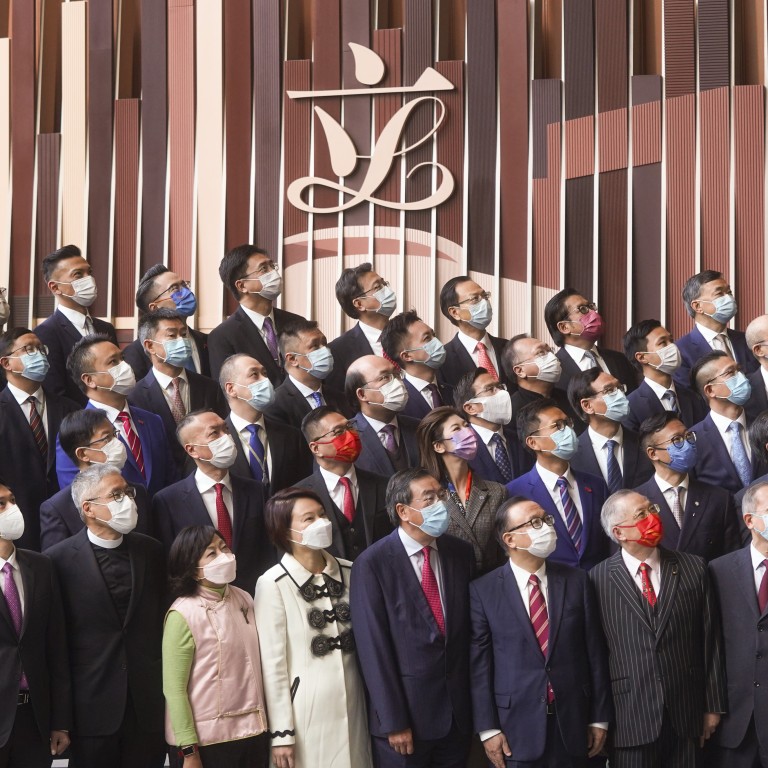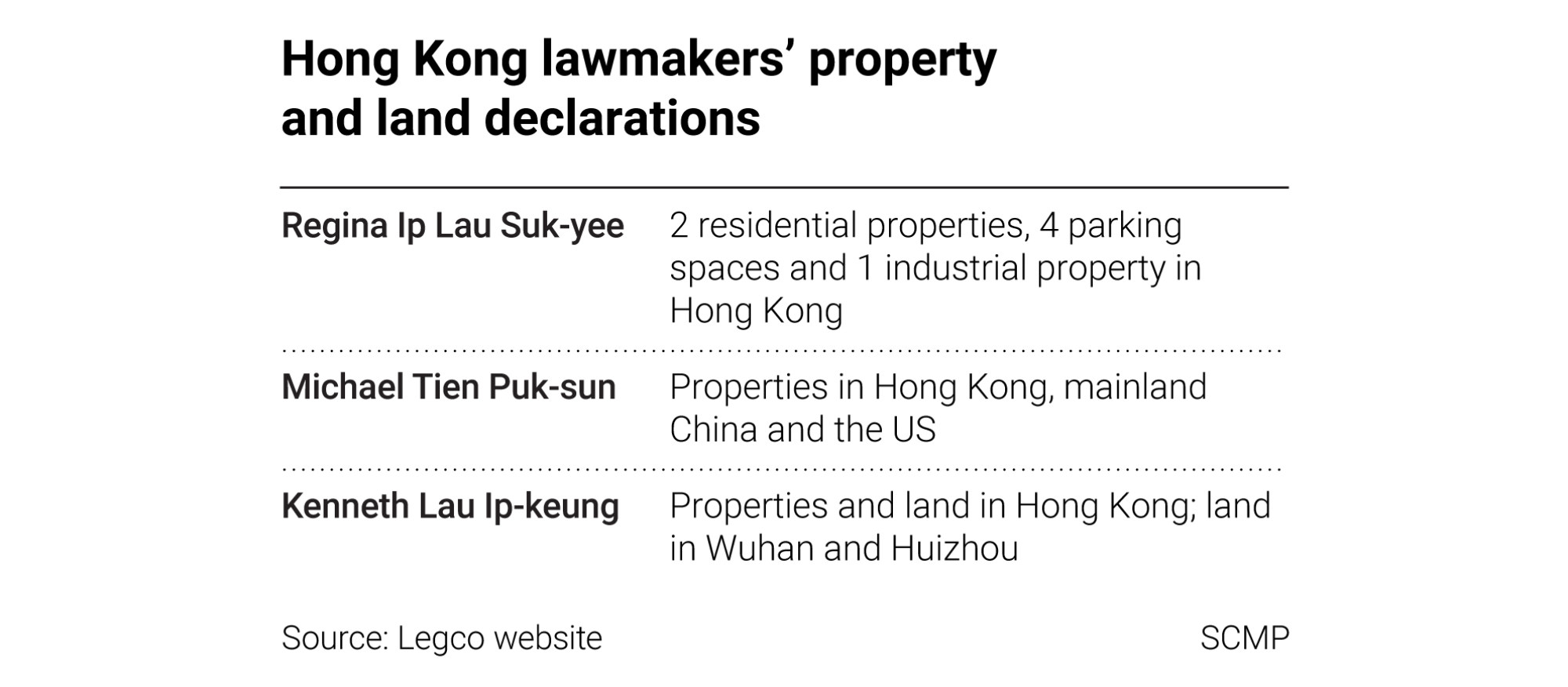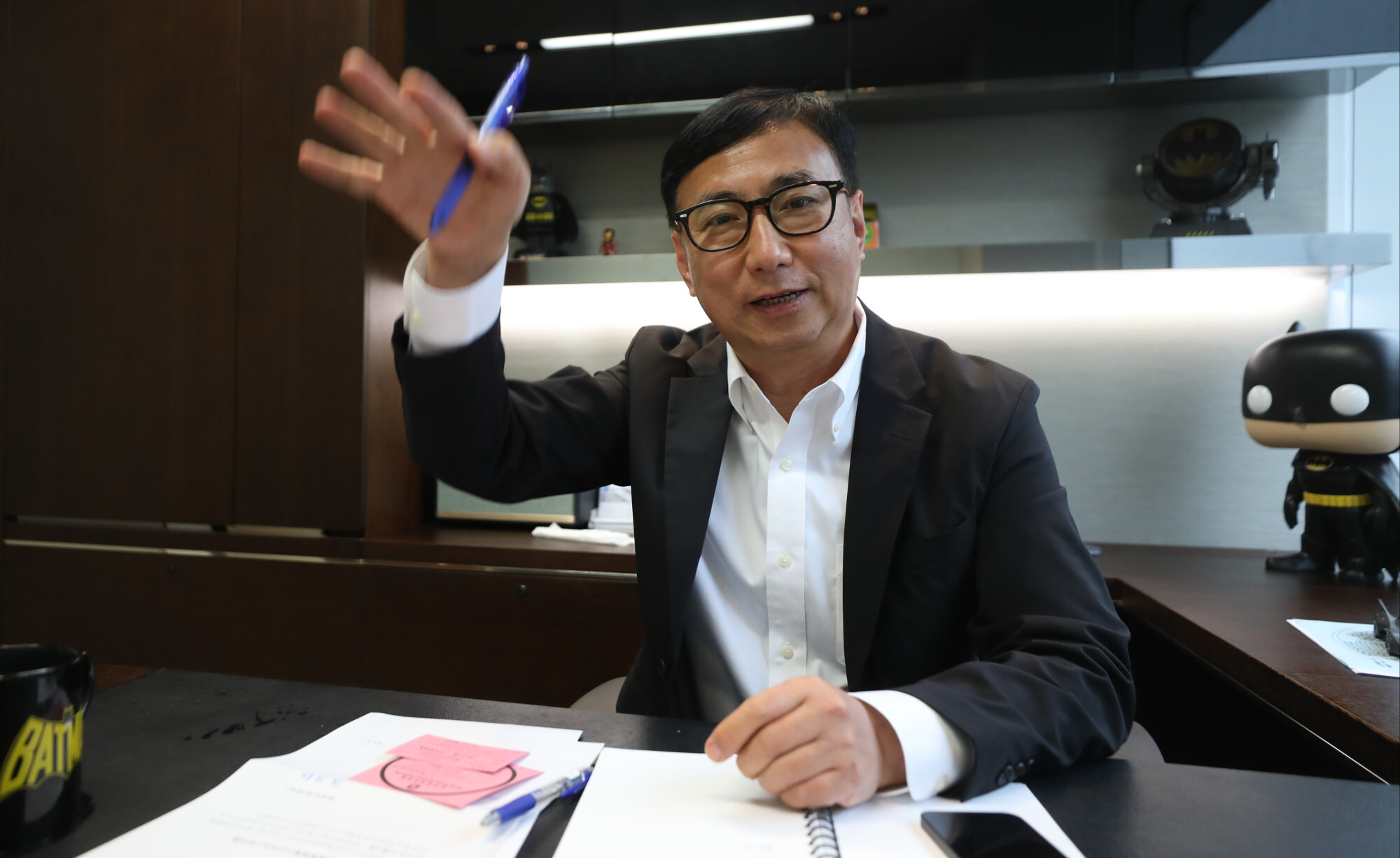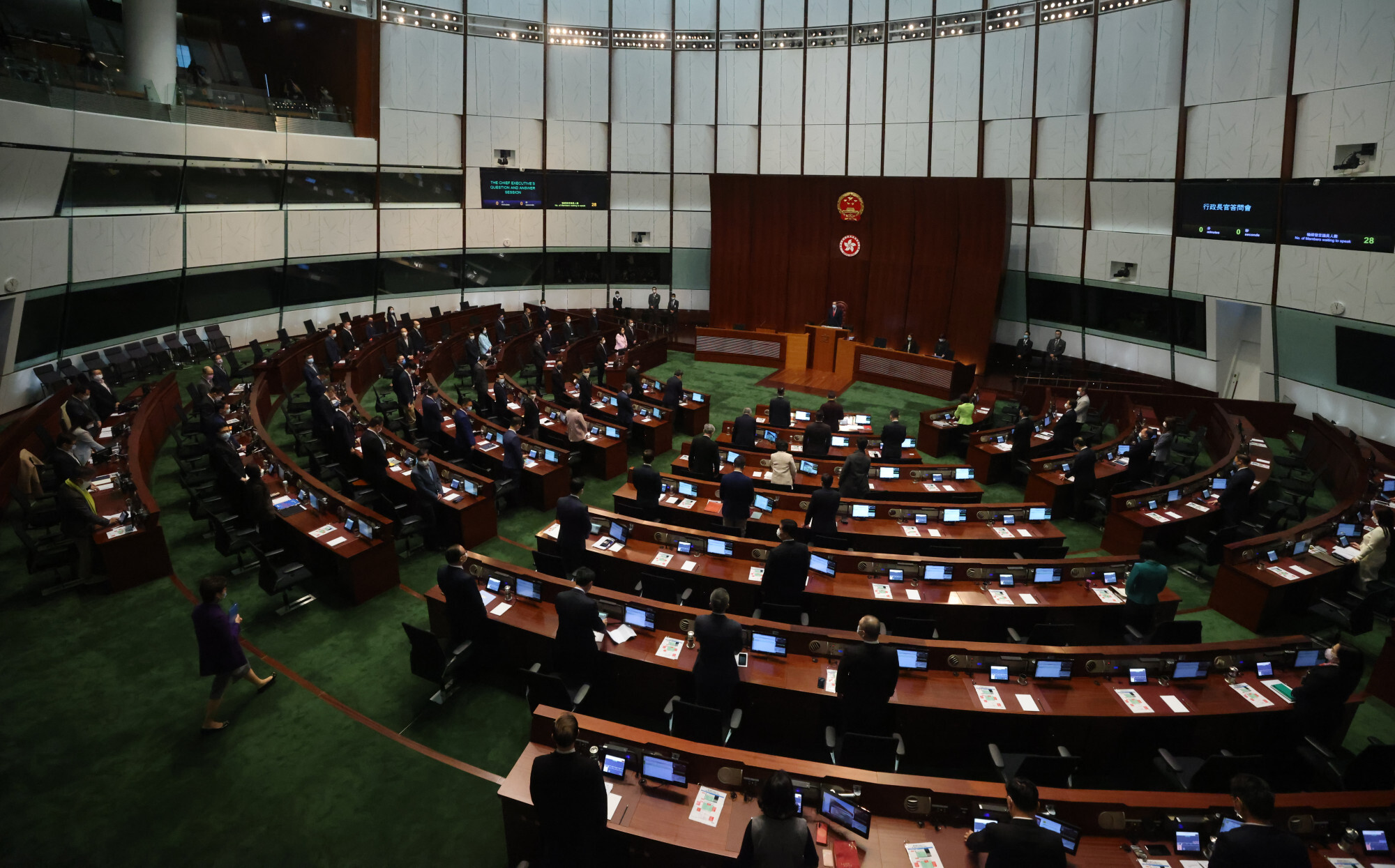
Hong Kong’s new lawmakers are mostly affluent homeowners, with property in mainland China and overseas. How well can they represent ordinary residents?
- Assets declaration shows 69 out of 90 legislators are property owners, nearly half with mainland investments
- Not-so-diverse Legco raises questions about members’ ability to reflect views of Hongkongers
Four in five newly elected lawmakers in Hong Kong are property owners, a proportion significantly higher than the city’s average and that of the previous Legislative Council, the Post has found.
Nearly half the owners had homes, investment property or land in mainland China, and some had multiple properties.
A check of the 90 lawmakers’ declared assets showed a rural leader with shares in more than 100 companies, while two political novices who described themselves as a teacher and an engineer on their election platforms declared paid jobs they did not disclose earlier.
Pro-establishment team to guide messaging and coordinate work in Hong Kong’s Legco
Chung Kim-wah, deputy CEO of the city’s leading survey group, the Hong Kong Public Opinion Research Institute, said the new Legco appeared to be filled with well-off individuals and less diverse than the previous legislature, which included opposition politicians.
He said: “When a legislature is stacked with members with high socioeconomic status, can it accurately reflect the views of the public to the government?”
The assets of many lawmakers were not known to the public until last week, when they had to declare what they and their spouses owned to the Legco secretariat.

The information was made available on the Legco website after its first meeting on Wednesday, and included ownership of residential and commercial property, land and shares. Lawmakers also had to declare any work done that they were being paid for.
The lawmakers were elected last month in the first Legco poll since Beijing overhauled Hong Kong’s electoral system to ensure that only “patriots” ran the city.

The Post check showed that 69 of the 90 lawmakers – 77 per cent – owned homes or investment properties, higher than the 70 per cent recorded in the previous 70-member Legco and well above the official home ownership mark of 51 per cent for Hongkongers.
Among the 69 property owners, 61 owned residential, investment or industrial properties, parking spaces or land in Hong Kong, 32 had property in mainland China and 12 had properties overseas.
The individual with the most properties was veteran lawmaker Paul Tse Wai-chun, a 62-year-old lawyer, who declared that he owned 15 residential properties in Hong Kong and one in Beijing.
Top Beijing official in Hong Kong lays out 5 expectations for new lawmakers
Nearly half of those with mainland properties are from the new 40-seat Election Committee Constituency, and include Tse and political novices closely linked to the mainland such as academic Sun Dong, 54, banking executive Tan Yueheng, 58, and researcher Wendy Hong Wen 46.
The trio are all gangpiao, a term that means “Hong Kong drifters” and is used to describe mainland Chinese who stayed after graduating from Hong Kong universities or came to work and remained longer than they planned.

The president of Hong Kong Island Social Services Charitable Foundation, So Cheung-wing, who did not state his age on the election platform, described himself as a representative of the grass roots. He declared that he owned property, land and parking lots in Hong Kong and the mainland.
Duncan Chiu, 46, representing the technology and innovation sector, declared that he owned land in Hong Kong and Japan, as well as properties in Hong Kong, the mainland, Japan and the United Kingdom, without specifying the exact number.

Roundtable party lawmaker Michael Tien Puk-sun, 71, who declared that he owned properties on the mainland, told the Post it did not matter where lawmakers had property as it would not influence how they voted in Legco.
“We support the central government anyway,” he said. “Whether we own mainland property or not won’t make any difference … We act in the interest of the whole society.”
Bill Tang Ka-piu, 42, of the Hong Kong Federation of Trade Unions (FTU), said he inherited the flat he owned in Guangdong, and added: “It’s common for Hongkongers to own homes across the border as we have all kinds of ties to the mainland.”

Among the 21 who did not declare ownership of any property were Tik Chi-yuen from the centrist Third Side party, the sole non-establishment lawmaker, labour sector legislators Chau Siu-chung and Kwok Wai-keung, and former security minister Lai Tung-kwok.
Tik, 64, told the Post: “The behaviour of all lawmakers is under public scrutiny. Let’s wait and see how the multiple influences work on our colleagues in future meetings.”
Lawmakers were also required to declare shares owned in companies and their paid employment.

Heung Yee Kuk chairman Kenneth Lau Ip-keung, 55, a prominent rural leader in the New Territories, declared shares in 105 companies ranging from moneylending firms to catering businesses.
Three newcomers who declared shares in about 40 companies each were Johnny Ng Kit-chong, 47, who described himself as a merchant during the campaign, lawyer Kennedy Wong Ying-ho, 58, and Duncan Chiu.

The lawmakers’ filings also showed that some held jobs they did not reveal earlier.
The Liberal Party’s Michael Lee Chun-keung, 45, an Election Committee constituency member, identified himself as an engineer but declared this week that his sole paid job since last February was as an executive of a parking lot management company.
Lilian Kwok Ling-lai, 42, of the Democratic Alliance for the Betterment and Progress of Hong Kong, described herself as a teacher, but declared that she held two paid jobs as a hotel training consultant from 2018 and an insurance consultant since last August.
She told the Post that she was a teacher for 20 years before resigning in 2018. She said her hotel job was a part-time training position “related to teaching” and she joined the insurance industry only to protect herself from scams.
Asked why she did not reveal her two jobs before the election, Kwok said: “These are too trivial compared with my major career as a teacher. It would have been way too much information to include.”

But Chung of the Hong Kong Public Opinion Research Institute said while some might choose to state their professional qualifications, it could be considered misleading to leave out their actual current jobs.
He said the declared assets of the lawmakers reflected that the composition of Legco was less diversified than Beijing officials thought when they described the line-up as “five lights and 10 colours”.
“It is inevitable lawmakers’ decisions reflect the class they belong to. For example, how will they vote on proposals to tax those owning properties on the mainland?” he asked.

